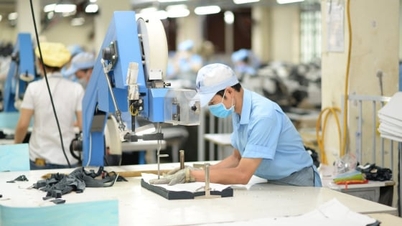The arrival of the group, owned by JD.com – a group listed on the Hong Kong Stock Exchange (China) and Nasdaq – is raising concerns in the French retail sector, which is already under pressure from strong competition from Shein and Temu.
With more than 600 million customers in China, Joybuy aims to expand into international markets, including Europe, using a strategy that combines low prices and high-quality images to differentiate itself from its competitors in the e-commerce sector. On its platform, Joybuy offers hundreds of thousands of products – from international brands to domestic Chinese goods – and promises significantly shorter delivery times than other Asian competitors.
Faced with the new Chinese e-commerce giant, French merchant associations are concerned. Lionel Saugues, president of the French Federation of Merchant Associations (FFAC), warned on France Info that “with models like this, we are facing unfair competition.” According to him, “it is time for French consumers to ask: what future do they want for their shopping centers and traditional shopping streets?”
The explosion of Chinese platforms selling directly to consumers at “floor-breaking” prices has hit a number of independent stores in France hard. “Every month we see a new competitor appear,” Mr. Saugues said. “All French retailers are facing competition from all sides. We have really reached the limit of tolerance.”
Joybuy has further raised concerns in the business community because its operating model could avoid a new tax that the French government plans to impose on small packages imported from China. Unlike Shein or Temu, which mainly deliver from Asia, parent company JD.com has built a network of warehouses in Europe, including Spain, Germany, the Netherlands, and France. This allows Joybuy to shorten delivery times and partly avoid the border tax that France is preparing to implement to protect its domestic market.
The arrival of Joybuy is a new escalation in the global competition for e-commerce, where Chinese giants are increasingly investing in European infrastructure to strengthen their presence, according to trade experts. While French consumers may benefit from low prices and fast service, merchant associations warn that this “instant convenience” could come at the cost of the decline of local commerce and the loss of jobs in smaller cities.
Source: https://vtv.vn/ngoi-sao-thuong-mai-dien-tu-moi-cua-trung-quoc-tham-nhap-thi-truong-phap-100251103091342305.htm


![[Photo] Ho Chi Minh City Youth Take Action for a Cleaner Environment](https://vphoto.vietnam.vn/thumb/1200x675/vietnam/resource/IMAGE/2025/11/04/1762233574890_550816358-1108586934787014-6430522970717297480-n-1-jpg.webp)

![[Photo] Panorama of the Patriotic Emulation Congress of Nhan Dan Newspaper for the period 2025-2030](https://vphoto.vietnam.vn/thumb/1200x675/vietnam/resource/IMAGE/2025/11/04/1762252775462_ndo_br_dhthiduayeuncbaond-6125-jpg.webp)
![[Photo] Ca Mau "struggling" to cope with the highest tide of the year, forecast to exceed alert level 3](https://vphoto.vietnam.vn/thumb/1200x675/vietnam/resource/IMAGE/2025/11/04/1762235371445_ndo_br_trieu-cuong-2-6486-jpg.webp)
![[Photo] The road connecting Dong Nai with Ho Chi Minh City is still unfinished after 5 years of construction.](https://vphoto.vietnam.vn/thumb/1200x675/vietnam/resource/IMAGE/2025/11/04/1762241675985_ndo_br_dji-20251104104418-0635-d-resize-1295-jpg.webp)








































































































Comment (0)